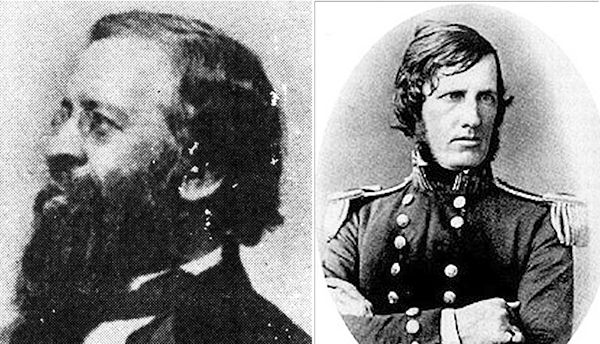In 1862, during the American Civil War, support on Kauai for the Union found expression in the formation of a paramilitary unit called the Koloa Volunteers.
By 1863, it could field a 15-man troop of cavalry led by Capt. Sanford Dole armed with antiquated muskets and a sword taken from the Waimea Russian Fort by sugar pioneer Valdemar Knudsen.
Dole would become one of the leaders of the 1893 revolution that deposed Queen Liliuokalani, the president of the provisional government that replaced the monarchy, the first president of the Republic of Hawaii, and the first governor of the Territory of Hawaii.
Two former residents of Malumalu, Kauai served as officers of the North — William Reynolds as a Union Navy officer and James Marshall, the first manager of Lihue Plantation, as a Union Army brigadier general.
Malumalu, by the way, is located on the Haupu Range side of Hulemalu Road, about 1/4 mile east of the intersection of Puhi and Hulemalu roads.
Kauai was not, however, without its southern sympathizers.
Scotsman Robert C. Wyllie, the foreign minister of the Hawaiian Kingdom and owner of Princeville Sugar Plantation, believed that the South had the right to secede from the United States.
Another southern supporter was Godfrey Wundenberg, Wyllie’s first manager at Princeville Sugar Plantation.
Outspoken in his backing of the South’s cause was Grove Farm Plantation founder and Kauai Circuit Court Judge Herman Widemann.
During the Civil War, numerous whaling ships were pressed into service by the federal government, while other whalers were sunk by Confederate privateers.
Consequently, there were fewer whale ships visiting Hawaiian ports of call for provisions.
While 549 whaling ships visited the Hawaiian Islands during the 1859 whaling season, only 73 appeared in 1862.
Business fell at the whaling ports of Hanalei, Waimea and Koloa, and Kauai suffered accordingly.
For instance, Kealia rancher Ernest Krull reported 500 barrels of unsold butter in 1865, while Koloa businessman George Charman’s potato crop rotted for lack of whalers to provision.



